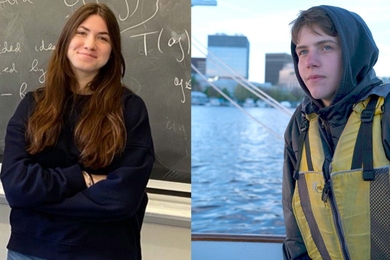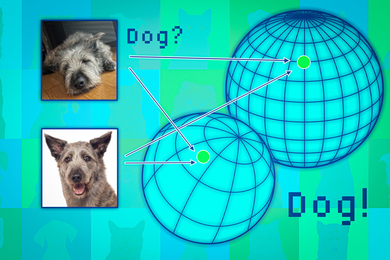Professor Elzbieta Ettinger Chodakowska has touched off a heated scholarly debate with her book based on correspondence between philosophers Hannah Arendt and Martin Heidegger.
Hannah Arendt/Martin Heidegger (Yale University Press) reveals that the two were lovers despite the German-born Jewish philosopher's "fierce and unforgiving attacks on totalitarianism," in the words of The New York Times, and Heidegger's reputation as "a prominent Nazi" who "at one time aspired to be Hitler's idealogue."
As Professor Chodakowska points out, the Times said, Heidegger's anti-Semitism had been well established even before the war in 1929 when he wrote to warn a high official in the Ministry of Education against the "growing Judiazation" of German's "spiritual life."
And as rector of Albert-Ludwigs University in Freiburg, he banned from the campus all Jewish professors, including his mentor, on orders of the Nazis.
The Arendt-Heidegger affair began in 1924 when she was 18 and enrolled in his course in philosophy at the University of Marburg. He was 35, married, and the father of two sons.
This much has long been known, regarded as a star-struck student's youthful fling, with the two then going their separate ways after a short-lived dalliance.
But Professor Chodakowska's book reveals that the affair "burned with white hot intensity for four years" and, most disturbing to some scholars, Arendt and Heidegger resumed their friendship after the war.
Arendt had last written to Heidegger in 1933, in a letter complaining of his anti-Semitism. But almost from the moment they were reunited in 1950, according to the book, Arendt forgave him everything and defended his reputation.
"She devoted herself to popularizing his philosophy in the United States and to vindicating his name in the eyes of his critics," Professor Chodakowska wrote.
"The revelations have stirred one of the most heated scholarly debates in recent memory," the Times said, "taking hold in publications and planned seminars, that raise such issues as the extent to which influential thinkers should be judged by their private acts."
Supporters and detractors of both Arendt and Heidegger have joined the fray, the Times reports.
"At the center of the storm is Elzbieta Ettinger [her pen name], an MIT professor in the program of writing and humanistic studies, the author of many books, including a biography of the socialist leader Rosa Luxemburg. Professor Ettinger said she first learned of the existence of the Arendt-Heidegger correspondence in 1988 from Arendt's friend Mary McCarthy.
"With Ms. McCarthy's support, Professor Ettinger obtained access to the correspondence in the Hannah Arendt Literary Trust in New York. Heidegger's correspondence with Arendt at the Deutsches Nationalarchiv in Marbach am Neckar, Germany, remains closed but Professor Ettinger was able to obtain copies of his letters and to paraphrase them without violating the copyright law."
Arendt died in 1975, half a year before Heidegger.
The letters reveal, Professor Chodakowska said, that Arendt and Heidegger were emotionally dependent on each other for most of their lives.
"She could have destroyed these letters but preserved them because she did not wish to be the invisible woman in Heidegger's life as Ellen Terry was in Dickens's life. She was proud that the most important philosopher of the century had chosen her."
As the debate swirls, with some critics turning their fire on Professor Chodakowska for allegedly misinterpreting Arendt's motives or exaggerating Heidegger's villainy, Professor Chodakowska said that in the final analysis the relationship was the stuff of poetic tragedy.
"No person who knows about love and passion will consider Arendt's forgiveness of Heidegger unusual," she said. "Some Americans have great difficulty understanding passion. When I discuss `Anna Karenina' with my students, they can't understand why Anna gives up a loving husband, a wonderful child and a beautiful home for this `jerk of an officer.' I tell them to read Manon Lescaut or D.H. Lawrence's Women in Love. Then they understand. Love is irrational. There is nothing we can do about it."
A version of this article appeared in MIT Tech Talk on December 6, 1995.





